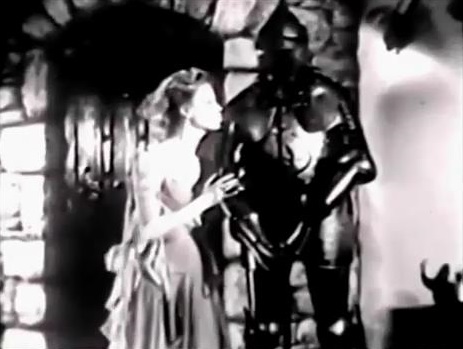Last Holiday
One of
Priestley’s beastly masterpieces (the author mentioned “various
depths of irony that London critics seemed to miss as they shrugged it
away,” seemed is good). Two years later came Kurosawa’s Ikiru.
“A typical British
programmer, funny if you don’t concentrate” (Don Druker, Chicago
Reader).
Young Wives’ Tale
The compleat
version of an analysis driven to farce in the confines of a house and nanny
shared by two families and an evil-minded young virgin called at one point
“the little manhater”, a family friend.
The nanny is
tyrannical and told-off and gone, another found with difficulty to replace her
is practically perfect etc. but scandalized beyond endurance and told-off and
gone.
The
housewife’s plight, the working mother’s plight, a sudden change of
husbands in a storm of emotion, quickly settled, even the evil-minded little
virgin.
It ends in a
madcap, hectic stretto, the writer’s life at home.
The cast of
equals is led by Nigel Patrick and Joan Greenwood (Helen Cherry, Derek Farr,
Athene Seyler, Audrey Hepburn, Guy Middleton et al.), a miraculous
comedy.
Castle in
the Air

The
rightful king of Scotland.
The place is costly
to keep, the Coal Board wants it for the miners’
recreation, by fiat.
The Denver
delicatessen millionairess is a faroff
relation and wants to buy.
Thus the postwar account of René Clair’s The
Ghost Goes West, from a stage play mind you.
H.H.T. of the New York Times, “slender but thoroughly
good-natured... cozy, chucklesome insularities of this featherweight import...
as typically British as they come... here again it offers few surprises along
the way... while the film meanders it never flounders... this offhand lark
almost consistently amusing... the kind of urbane drollery”. Britmovie, “a lacklustre farce... miscast... not without its charm”. TV Guide, “plot,
plot, plot, and all of it drab, drab, drab.” Hal Erickson (All Movie Guide), “hectic British
comedy”.
No Smoking
The village
chemist and tobacconist squabble over a barmaid, an American steps in to
promote the chemist’s cure for smoking, it raises an international
incident.
The chemist is
fearfully shy, the head of the tobacco combine has a secretary who can’t
type a word, among others.
A very great
comedy, blissfully unknown despite a certain learned appreciation of Laurel and
Hardy that is quite characteristic of the studious English who supplied half
the team, and the very sharp gag material very fast in the delivery that makes
a surface as smooth as the village pond.
The Crooked Sky
Counterfeit pound
notes are flying into England on American planes belonging to Globe Link, a
passenger and freight service, the mastermind is a Teuton
with a gang of killers who also runs a posh “illegal gambling den”
in London.
The screenplay is
so schematic that a synopsis tells the tale as “a succession of
images”, the direction superbly reinforces this rather than running
counter, Cass on the airfield for a picnic lunch amongst the aircraft looming
expressively in every shot, or in a nursery with a hobbyhorse prominent (the
American Treasury agent interviews an ex-con), establishes the elements of the
composition throughout and no mistake.
A capital joke
has Scotland Yard hushed by spectators at a chamber music recital given by the
gang.
Blood of the Vampire
A
true nightmare of the rarest sort, the ingenuity of which starts with the fact
that there are no vampires in it.
Piranesi is suggested somehow, or Kafka, in the simple ornament of a
man’s bleeding back and a high iron chandelier with a uniformed keeper at
a prison for the criminally insane. Always several elements comprise the single
image, weighing it down, distracting and confusing the spectator (in all
fairness, be it said Time Out Film Guide
takes no notice) in a vision of palpable horror and revulsion that, by degrees,
lightens toward the end.
The superstition
claims a medical man researching the blood, another doctor is imprisoned for
carrying out a fatal transfusion, professional ignorance is the cause,
transfusions are unknown or nearly, blood groups not yet understood.
The first,
revived by a drunken surgeon whom his disfigured manservant subsequently kills,
doctors the evidence in order to convict the second and ultimately bring him to
the prison described, run by himself, and there the two bleed every inmate to
sustain the dying warden and find a cure for his ailment, blood
“antagonistic” to every group (the prisoner-physician knows
nothing, merely continues his research, the truth impresses itself upon him).
Erle C.
Kenton’s House of Dracula is
the great original, Ford’s The
Prisoner of Shark Island is called upon, Franju’s
Les Yeux sans
visage supplies the ending.
A
perfect masterpiece, a glory of the cinema.